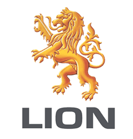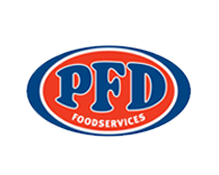Industrial Robotics
Industrial robotics: Industrial robotics are robots that are used in manufacturing and other industrial applications.
Industrial robotics has become an increasingly important part of the modern industrial landscape. It is a rapidly evolving technology with implications for productivity, efficiency, and safety in industry. This article will examine various aspects of industrial robotics, including their development and applications, as well as potential challenges they present.
Robots are machines designed to automate tasks that would otherwise be performed by humans. They are programmed to complete specific actions and can operate autonomously or through remote control systems. Over the past few decades, robots have been deployed in numerous industries around the world for automation purposes such as welding and painting objects.
The introduction of these robotic technologies into the industrial sector has presented both opportunities and challenges for businesses. From cost savings to improved accuracy, greater speed and enhanced safety standards – there is much to consider when evaluating whether to invest in industrial robotics solutions for your organisation. Ultimately, this article aims to provide readers with insights on how industrial robotics may benefit their business operations moving forward.
What Is Meant By Industrial Robotics?
Industrial Robotics is the use of robotic arms, industrial robots and computer simulations to automate processes in a manufacturing environment. This technology has long been used for material handling and end effectors, such as welding or painting. In recent years, with the advancement of machine vision and cloud-based computing, industrial robotics services have become more accessible.
Today, industrial robotics are employed in a variety of applications from automotive assembly lines to medical device production. The market size for industrial robotics continues to grow due to its potential cost savings over traditional methods. Companies also benefit from increased productivity, improved accuracy and decreased downtime associated with automation technologies. Furthermore, advances in artificial intelligence (AI) capabilities offer new opportunities for optimising workflows such as predictive maintenance and process control optimisation. As AI algorithms continue to improve and evolve, so too does the potential that can be unlocked by leveraging this technology within an organisation's operations.
The advantages offered by industrial robotics make it attractive for many companies looking to boost their efficiency while reducing costs. However, implementing these systems requires careful planning and should not be undertaken without considering all available options first. Additionally, there are still challenges like programming complexity which need to be addressed before any implementation can take place successfully. Despite these obstacles, industry experts agree that the future of industrial robotics looks promising with continued innovation expected throughout the sector.
What Are The 6 Types Of Industrial Robots?
Industrial robots are an integral part of the modern manufacturing industry. They can be found in many different industries, from automotive to machine tending. In this article we will explore six types of industrial robots and their applications.
The first type is a robotic arm or manipulator. This type of robot consists of several joints connected by links which allow it to move in three-dimensional space. The end effector attached to the arm can perform tasks such as welding, painting, and assembly operations. These robots are often used for precision work in the automotive industry due to their accuracy and speed.
Next up are collaborative robots or cobots. These versatile machines can interact with humans while performing repetitive tasks such as packing, sorting, and palletizing products on a production line. Cobots have been designed with safety features that make them safe for human operators to work alongside them without risk of injury. Additionally, they require minimal setup time and programming expertise compared to traditional industrial robots making them ideal for small businesses looking for automation solutions.
Delta robots are another popular choice when it comes to industrial robotics applications due to their high speed and precision movements even at very fine resolutions. They consist of three arms mounted on a base platform that moves along two axes allowing them to pick up objects quickly and accurately from one point and place them at another location within seconds . They are mainly used for packaging food items where speed is essential for increasing gross margin profitability whilst maintaining quality standards across products lines..
Finally, there are more specialized types of industrial robots such as machine tending units which integrate sensors into the robotic system so that it can detect changes in its environment (e.g., temperature). These sophisticated systems enable automated processes like loading/unloading parts or materials onto CNC machines while avoiding collisions with other components or machinery around them resulting in increased efficiency and productivity overall .
Industrial robotics has become increasingly important over recent years due to its ability to increase throughputs , improve safety protocols, reduce overhead costs ,and eliminate labor bottlenecks within factories worldwide . As technology continues developing faster than ever before ,there seems no limit too what these advanced robotic systems can do today ..
What Are Industrial Robots Used For?
Industrial robots are an integral part of the robotics industry. They are specifically designed to carry out repetitive and labour-intensive tasks in industrial settings by replacing human work forces or supplementing them. The most common type of industrial robot is a robotic arm, which is used for various applications such as welding, painting, assembly, inspection, packaging and palletizing.
Robots can also be utilised to offer professional service robots that may include cleaning floors, delivering items or providing healthcare assistance. In addition to carrying out mechanical operations with precision and accuracy, they can perform complex artificial intelligence (AI) processes like machine learning and deep learning in order to optimise production lines and product quality.
Moreover, industrial robots have been widely adopted across different industries for their efficient automation capabilities and cost savings potentials. For instance, commercial companies use these machines to automate parts of their production process while hospitals rely on them to reduce the amount of time taken for diagnostics and laboratory tests. Industrial robots are also increasingly being integrated into numerous other industries including automotive manufacturing plants, aerospace engineering firms and defence organisations for various industrial applications ranging from assembling components to inspecting raw materials.
Industrial robotics has revolutionised the way many businesses operate today by streamlining production costs while ensuring consistent product outputs at higher speeds than previously possible through manual labour alone. As more advancements continue to be made in this field with increased levels of AI integration into robotic systems, it is likely that its role will become even more vital in helping companies reach optimal efficiency levels with minimal effort put forth by humans.
What Are Some Examples Of Industrial Robots?
Industrial robots are used in a variety of fields and industries. They range from mobile robots that can navigate autonomously to robotic devices with rotary joints and motion control capabilities, allowing them to perform complex tasks such as welding and assembly line work. The use of industrial robots has increased dramatically over the past decade, especially in North America where many companies have invested heavily in robotics technology for their operations.
One example is ABB Robotics, one of the world’s leading industrial robot companies based in Sweden. It produces both stationary and mobile robots for various industries including automotive, pharmaceuticals and food processing. Its annual revenue was reported to be around $21 billion USD in 2019. In the United States alone, there are currently more than 200,000 industrial robots being employed by businesses throughout the country; these machines are increasingly replacing human workers due to their efficiency and accuracy when it comes to performing difficult or dangerous tasks.
Robotic automation technologies have been instrumental in revolutionising manufacturing processes across all sectors of industry today, particularly within North America where they play an important role in reducing costs while improving productivity. By utilising advanced sensors and sophisticated algorithms, these machines are able to precisely execute even the most delicate jobs without any errors thus increasing overall output and quality assurance at a fraction of what it would cost if done manually by human labour force alone. This has allowed manufacturers to achieve greater profits while also providing significant benefits for society as a whole through job creation and economic growth.
What Are The 5 Major Fields Of Robotics *?
Robotics is a technology that has evolved significantly in recent years, and its application to the industrial sector has revolutionised the way people work. The five major categories of robotics are industrial robot definition, six axis robots, actual robots, autonomous mobile robots, and coexisting robots.
Industrial robot definition covers the essential components of any robotic system: power sources such as electricity or hydraulics; sensors for perceiving environment elements; actuators for transforming inputs into physical movements; computational capabilities for processing information; programming commands for executing specific tasks; and essential robot peripherals like grippers and end effectors. Six-axis robots are articulated mechanical arms with 6 degrees of freedom used to move materials from one point to another in a controlled manner. Actual robots refer to machines that can perform complex tasks autonomously without direct human control. Autonomous mobile robots navigate within their workspace using artificial intelligence algorithms, allowing them to automatically adjust their route depending on obstacles or changes in their environment. Coexisting robots use multiple types of automated equipment working together towards shared objectives, usually found in manufacturing environments where dozens of robot units collaborate simultaneously on different parts of an assembly line.
The International Federation of Robotics provides reliable data regarding global trends in robotics development and applications worldwide. It also offers technical support services related to automation systems engineering, design and testing standards, safety regulations compliance checks, project management advice and more. TIP: To stay up-to-date with the latest advancements in industrial robotics technologies be sure to check out resources provided by the International Federation of Robotics!
What Are The Top 5 Industries For Robotics Use?
Robotics are becoming increasingly more prevalent in the industrial landscape, and their use is growing as companies seek to reduce production costs and increase market share. Many industries have seen a surge of robotics applications, leading some experts to forecast continued growth over the next five years.
Top 5 industries for robotics use include:
- automotive,
- healthcare,
- electronics & semiconductor manufacturing,
- aerospace & defence,
- and food & beverage.
Automotive has long been at the forefront of using robots on assembly lines due to its need for precision and safety protocols. In this industry, robotic positions such as welding have become commonplace thanks to innovations like The Robot Gargantua which can handle up to 500 kg of weight with ease. Healthcare too has shown an increased interest in utilising robots for various medical operations or patient care tasks that require high levels of accuracy.
The electronic & semiconductor manufacturing industry is also taking advantage of the design capabilities offered by robotics and automation technology in order to produce complex components faster than ever before. Aerospace & Defence firms often employ advanced mechanical systems and robotics into their engineering processes in order to create higher quality products within shorter time frames. Lastly, Food & Beverage plants are turning towards occupational robots in order to reduce labour cost while maintaining quality control standards during production lines.
As these industries continue investing heavily into robotics tech development, it’s expected that they will benefit from improved gross margins by reducing operational costs associated with manual labour whilst increasing productivity efficiency throughout the forecast period. This trend further highlights how important it is for companies across all sectors to remain updated on latest advancements in Robotics Technology if they wish to stay competitive amidst changing markets dynamics.
Bullet Point List: • Automotive - Welding Robots used on Assembly Lines • Healthcare - Medical Operations/Patient Care Tasks • Electronics & Semiconductor Manufacturing - Complex Components • Aerospace & Defence – Advanced Mechanical Systems • Food & Beverage – Occupational Robots • Packaging – Automated Packaging and Labelling Systems
Conclusion
Industrial robotics has become an integral part of modern manufacturing processes. It is estimated that the industrial robot market will grow to $8 billion by 2025, leading to more widespread adoption and use in factories around the world. Industrial robots are used for a variety of tasks including material handling, moving materials from one location to another, welding, assembly line operations, and many other applications. There are six types of industrial robots – Cartesian Coordinate Robot Arms, SCARA Robots, Articulated Arm Robots, Delta Robots, Cylindrical Robotic Arms and Spherical Robotic Arms – each with its own unique benefits and capabilities. Robotics can be found across five major fields: medical robotics; unmanned aerial vehicles (UAVs); defence/military robotics; consumer/service robotics; and manufacturing/industrial robotics. The top 5 industries employing robotic technologies include automotive production, electronics manufacturing, food & beverage processing, metalworking machinery manufacturing, and pharmaceuticals & cosmetics production.
Robots have revolutionized how industry works today as they offer numerous advantages over manual labour such as increased speed of operation while also reducing the risks associated with hazardous working conditions in some areas. Furthermore, there is potential for further development in terms of artificial intelligence which could enable robots to act autonomously or semi-autonomously depending on task requirements. This would allow them to make decisions quickly without human intervention thus significantly increasing productivity gains even further. In conclusion then it is clear that industrial robotics has come a long way since its inception decades ago and now plays an indispensable role within the manufacturing sector worldwide.
PREVIOUS NARROW AI GLOSSARY TERM
NEXT NARROW AI GLOSSARY TERM
Inferential statisticsIndustrial Robotics Definition
Exact match keyword: Industrial Robotics N-Gram Classification: Automated Industrial Robots, Industrial Robot Arm, Industrial Robotics Automation Substring Matches: Bot, Robot, Industrial Long-tail variations: "Automated Industrial Robots", "Industrial Robot Arm", "Industrial Robotics Automation" Category: Business, Technology Search Intent: Research, Solutions, Purchase Keyword Associations: Artificial Intelligence, Machine Learning, Automation Semantic Relevance: Artificial Intelligence, Machine Learning , Automation , Robotic Process Automation Parent Category: Technology Subcategories: Artificial Intelligence , Machine Learning , Automation , Robotic Process Automation Synonyms: AI , ML , RPA Similar Searches : Manufacturing robots , Service robots Geography Relevance : Global Audience Demographics : Business Professionals ,Students , Researchers Brand Mentions : ABB robotics , KUKA robotics Industry-specific data : Cost of industrial robots Commonly used modifiers : Autonomous Topically relevant entities : AI technology in industrial robotics , Types of industrial robots."Larry will be our digital expert that will enable our sales team and add that technological advantage that our competitors don't have."
Kerry Smith
CEO, PFD Foods
$1.6 billion in revenue 
"Lion is one of Australasia’s largest food and beverage companies, supplying various alcohol products to wholesalers and retailers, and running multiple and frequent trade promotions throughout the year. The creation of promotional plans is a complicated task that requires considerable expertise and effort, and is an area where improved decision-making has the potential to positively impact the sales growth of various Lion products and product categories. Given Complexica’s world-class prediction and optimisation capabilities, award-winning software applications, and significant customer base in the food and alcohol industry, we have selected Complexica as our vendor of choice for trade promotion optimisation."
Mark Powell
National Sales Director, Lion
"At Liquor Barons we have an entrepreneurial mindset and are proud of being proactive rather than reactive in our approach to delivering the best possible customer service, which includes our premier liquor loyalty program and consumer-driven marketing. Given Complexica’s expertise in the Liquor industry, and significant customer base on both the retail and supplier side, we chose Complexica's Promotional Campaign Manager for digitalizing our spreadsheet-based approach for promotion planning, range management, and supplier portal access, which in turn will lift the sophistication of our key marketing processes."
Richard Verney
Marketing Manager
Liquor Barons

"Dulux is a leading marketer and manufacturer of some of Australia’s most recognised paint brands. The Dulux Retail sales team manage a diverse portfolio of products and the execution of our sales and marketing activity within both large, medium and small format home improvement retail stores. We consistently challenge ourselves to innovate and grow and to create greater value for our customers and the end consumer. Given the rise and application of Artificial Intelligence in recent times, we have partnered with Complexica to help us identify the right insight at the right time to improve our focus, decision making, execution, and value creation."
Jay Bedford
National Retail Sales Manager
Dulux

"Following a successful proof-of-concept earlier this year, we have selected Complexica as our vendor of choice for standardizing and optimising our promotional planning activities. Complexica’s Promotional Campaign Manager will provide us with a cloud-based platform for automating and optimising promotional planning for more than 2,700 stores, leading to improved decision-making, promotional effectiveness, and financial outcomes for our retail stores."
Rod Pritchard
Interim CEO, Metcash - Australian Liquor Marketers
$3.4 billion in revenue 
"After evaluating a number of software applications and vendors available on the market, we have decided to partner with Complexica for sales force optimisation and automation. We have found Complexica’s applications to be best suited for our extensive SKU range and large set of customers, being capable of generating recommendations and insights without burdening our sales staff with endless data analysis and interpretation.
Aemel Nordin
Managing Director, Polyaire
"DuluxGroup is pleased to expand its relationship with Complexica, a valued strategic partner and supplier to our business. Complexica’s software will enable DuluxGroup to reduce the amount of time required to generate usable insights, increase our campaign automation capability, personalise our communications based on core metrics, and close the loop on sales results to optimise ongoing digital marketing activity."
James Jones
Group Head of CRM, DuluxGroup
"Instead of hiring hundreds of data scientists to churn through endless sets of data to provide PFD with customer-specific insights and personalised recommendations, Larry, the Digital Analyst® will serve up the answers we need, when we need them, on a fully automated basis without the time and manual processes typically associated with complex analytical tasks.”
Richard Cohen
CIO, PFD Foods
$1.6 billion in revenue 
"As a global innovator in the wine industry, Pernod Ricard Winemakers is always seeking ways to gain efficiencies and best practices across our operational sites. Given the rise of Artificial Intelligence and big data analytics in recent times, we have engaged Complexica to explore how we can achieve a best-in-class wine supply chain using their cloud-based software applications. The engagement is focused on Australia & New Zealand, with a view to expand globally."
Brett McKinnon
Global Operations Director, Pernod Ricard Winemakers
"70% - 80% of what we do is about promotional activity, promotional pricing -- essentially what we take to the marketplace. This is one of the most comprehensive, most complex, one of the most difficult aspect of our business to get right. With Complexica, we will be best in class - there will not be anybody in the market that can perform this task more effectively or more efficiently than we can."
Doug Misener
CEO, Liquor Marketing Group
1,400+ retail stores 
"The key thing that makes such a difference in working with Complexica is their focus on delivering the business benefits and outcomes of the project."
Doug Misener
CEO, Liquor Marketing Group
1,400+ retail stores 
"Australia needs smart technology and people, and it has been a great experience for me to observe Complexica co-founders Zbigniew and Matt Michalewicz assemble great teams of people using their mathematical, logic, programming, and business skills to create world-beating products. They are leaders in taking our bright graduates and forging them into the businesses of the future."
Lewis Owens
Chairman of the Board, SA Water 
"Having known the team behind Complexica for some years ago now, I am struck by their ability to make the complex simple - to use data and all its possibilities for useful purpose. They bring real intelligence to AI and have an commercial approach to its application."
Andrew McEvoy
Managing Director, Fairfax Media - Digital 
"I have worked with the team at Complexica for a number of years and have found them professional, innovative and have appreciated their partnership approach to delivering solutions to complex problems."
Kelvin McGrath
CIO, Asciano 
“Working with Complexica to deliver Project Automate has been a true partnership from the initial stages of analysis of LMG’s existing processes and data handling, through scoping and development phase and onto delivery and process change adoption. The Complexica team have delivered considerable value at each stage and will continue to be a valued partner to LMG."
Gavin Saunders
CFO, Liquor Marketing Group 
“Complexica’s Order Management System and Larry, the Digital Analyst will provide more than 300 Bunzl account managers with real-time analytics and insights, to empower decision making and enhanced support. This will create more time for our teams to enable them to see more customers each day and provide the Bunzl personalised experience.”
Kim Hetherington
CEO, Bunzl Australasia 
"The team behind Complexica develops software products that are at the cutting edge of science and technology, always focused on the opportunities to deliver a decisive competitive edge to business. It has always been a great experience collaborating with Matthew, Zbigniew and Co."
Mike Lomman
GM Demand Chain, Roy Hill Iron Ore 
"The innovations that the Complexica team are capable of continue to amaze me. They look at problems from the client side and use a unique approach to collaborating with and deeply understanding their customers challenges. This uniquely differentiates what they bring to market and how they deliver value to customers."
John Ansley
CIO, Toll Group 
"Rather than building out an internal analytics team to investigate and analyse countless data sets, we have partnered with Complexica to provide our sales reps with the answers they need, when they need them, on a fully automated basis. We are excited about the benefits that Larry, the Digital Analyst will deliver to our business.”
Peter Caughey
CEO, Coventry Group 
“Complexica’s Order Management System and Larry, the Digital Analyst will provide more than 300 Bunzl account managers with real-time analytics and insights, to empower decision making and enhanced support. This will create more time for our teams to enable them to see more customers each day and provide the Bunzl personalised experience.”
Kim Hetherington
CEO, Bunzl Australasia 
"After an evaluation process and successful proof-of-concept in 2016, we have chosen to partner with Complexica to upgrade the technological capability of our in-field sales force. The next-generation Customer Opportunity Profiler provided by Complexica will serve as a key tool for sales staff to optimise their daily activities, personalise conversations and interactions with customers, and analyse data to generate actionable insights."
Stephen Mooney
Group Sales Capability Manager, DuluxGroup
$1.7 billion in revenue
"After evaluating a number of software systems available in the marketplace, we have ultimately selected Complexica as our vendor of choice for sales force automation and CRM. Given the large SKU range we carry and very long tail of customers we serve, Complexica’s applications are best suited to deal with this inherent complexity without burdening our staff with endless data entry."
Nick Carr
CEO, Haircaire Australia
Australia's largest distributor of haircare products
“Asahi Beverages is Australia’s largest brewer, supplying a leading portfolio to wholesalers and retailers, including some of Australia’s most iconic brands. Last year Asahi Beverages acquired Carlton & United Breweries, which is its Australian alcohol business division. To harness the strength of our expanded portfolio, we partner with our customers to run multiple and frequent trade promotions throughout the year, delivering long-term growth for both our business and theirs. Given the inherent complexity in optimising promotional plans and our continued focus on revenue and growth management, we have selected Complexica as our vendor of choice after a successful Proof-of-Concept of its world-class optimisation capabilities.”
Kellie Barnes
Group Chief Information Officer
Asahi Beverages
"Dulux is a leading marketer and manufacturer of some of Australia’s most recognised paint brands. The Dulux Retail sales team manage a diverse portfolio of products and the execution of our sales and marketing activity within both large, medium and small format home improvement retail stores. We consistently challenge ourselves to innovate and grow and to create greater value for our customers and the end consumer. Given the rise and application of Artificial Intelligence in recent times, we have partnered with Complexica to help us identify the right insight at the right time to improve our focus, decision making, execution, and value creation."
Jay Bedford
National Retail Sales Manager, DuluxGroup
"At Liquor Barons we have an entrepreneurial mindset and are proud of being proactive rather than reactive in our approach to delivering the best possible customer service, which includes our premier liquor loyalty program and consumer-driven marketing. Given Complexica’s expertise in the Liquor industry, and significant customer base on both the retail and supplier side, we chose Complexica's Promotional Campaign Manager for digitalizing our spreadsheet-based approach for promotion planning, range management, and supplier portal access, which in turn will lift the sophistication of our key marketing processes."
Richard Verney
Marketing Manager, Liquor Barons


































